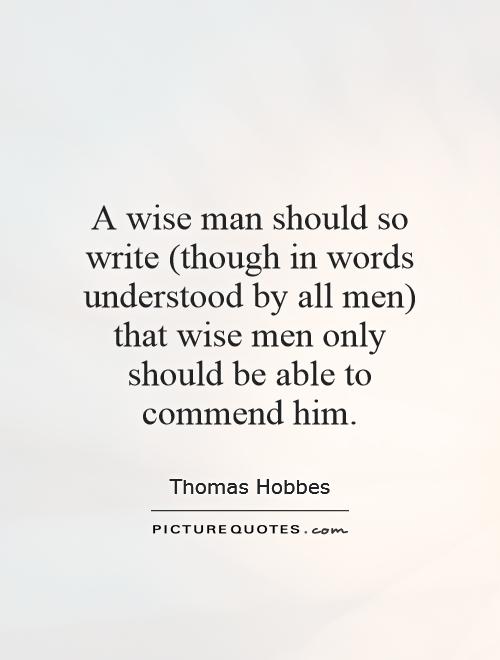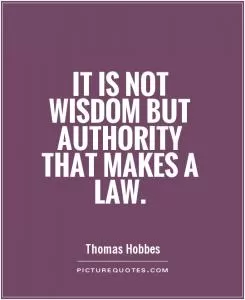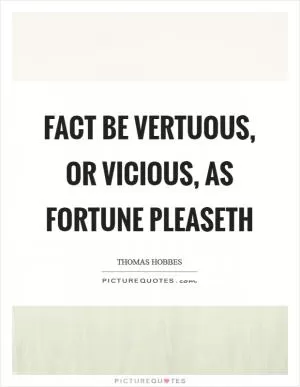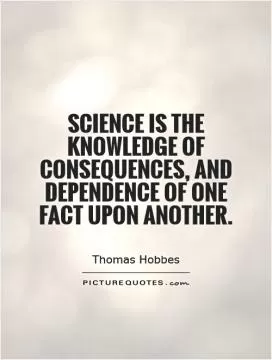A wise man should so write (though in words understood by all men) that wise men only should be able to commend him

A wise man should so write (though in words understood by all men) that wise men only should be able to commend him
Thomas Hobbes, a renowned English philosopher, is often considered a wise man in the realm of political theory and philosophy. His works, such as "Leviathan" and "The Elements of Law," have had a lasting impact on the field and continue to be studied and debated by scholars and thinkers alike. In the context of the quote "A wise man should so write (though in words understood by all men) that wise men only should be able to commend him," it is clear that Hobbes' writing style and content align with this sentiment.Hobbes was known for his clear and concise writing style, making his ideas accessible to a wide audience. Despite this accessibility, his works are filled with complex and nuanced arguments that require careful consideration and analysis. This duality in his writing is what sets him apart as a wise man in the eyes of many.
Hobbes' writing is often praised by fellow philosophers and scholars for its depth and insight. His ideas on the social contract, the state of nature, and the role of government have been influential in shaping modern political thought. However, these ideas are not always easily understood by the average reader. It is only those who are well-versed in philosophy and political theory who can truly appreciate the brilliance of his work.












 Friendship Quotes
Friendship Quotes Love Quotes
Love Quotes Life Quotes
Life Quotes Funny Quotes
Funny Quotes Motivational Quotes
Motivational Quotes Inspirational Quotes
Inspirational Quotes